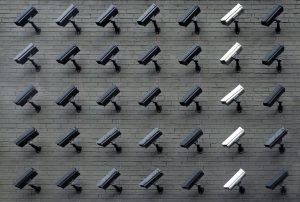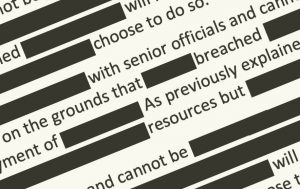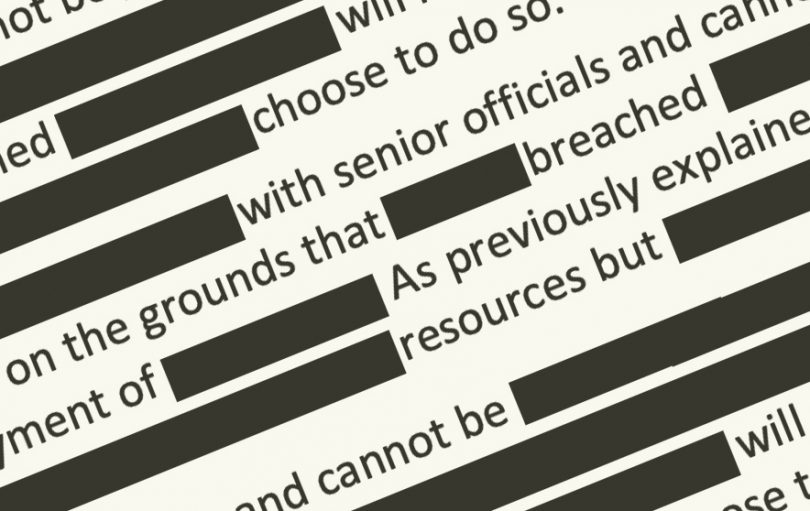Reporters Without Borders warns anti-terrorism legislation has put investigative journalism in danger.
On 4 June 2019, the Australian Federal Police (AFP) raided News Corp journalist Annika Smethurst’s home over the publication of a leaked plan to allow government spying on Australians.
The following day the AFP raided the ABC, and searched computer systems for files linked to alleged unlawful killings by Australian soldiers in Afghanistan.
“The balance in the national security debate is now too weighted towards secrecy and away from the public’s right to know,” Nine chief executive Hugh Marks said.
Reporters Without Borders ranked Australia as 26th in the world for press freedom in 2020.
Australian media companies have fought back against the legislation and advocated for greater protections for mainstream journalists.
The arrest of Julian Assange in 2019 demonstrated that support did not extend to all.
Following his arrest, Alliance for Journalists’ Freedom founding director Peter Greste wrote that Assange: “cannot claim to be a journalist or hide behind arguments in support of press freedom.”
Assange has won multiple prestigious journalism awards for uncovering damning information about powerful business and political elites, but the mainstream media has generally not argued for him to be afforded the same freedoms and protection.
Current anti-terror laws have eroded the public’s right to access information that allows them to scrutinise decisions and actions taken by government.
A global alliance of human rights organisations downgrade Australia’s democratic status from “open” to “narrowed” in 2019.
The CIVICUS Monitor focused on recent police raids and prosecution of whistle-blowers, as well as legislation that gave law enforcement authorities power to force tech companies to hand over user information.

Surveillance Cameras.
(Photo by Lianhao Qu via Unsplash)
Australian media outlets have advocated for greater democratic freedoms, but their campaign has tended to support only mainstream, traditional journalists.
It wasn’t until October 2019 that a campaign about the Right to Know really entered the public debate in Australia, after major newspapers published their front pages with stylised redactions.
The catalyst for the campaign was the two consecutive raids on mainstream news organisations, News Corp and the ABC.
Australia’s Right to Know (ARTK) coalition coordinated the campaign, and have been pushing the government to make reforms through submitting evidence to committees.
The Right to Know campaign was praised, mostly by fellow journalists, for bringing together the major media corporations in an unprecedented act of unity.
Their key demands call for journalist exemptions from prosecution under a number of national security laws, freedom of information reform, defamation law reform, a narrowing of the information classified as secrets, right to contest warrants and stronger safeguards for whistle-blowers.
Espionage, secrecy and foreign interference offences were previously redrafted to give “a very full and complete defence for any person engaged in public interest journalism to those secrecy offences,” Attorney-General Christian Porter said.

A redacted document. Photo by: Nicolas Zoumboulis
The Right to Know campaign garnered support by saying it was an issue that affected everyone.
In 2015, the Federal Government passed highly controversial data retention legislation, to which the media strongly objected to on the basis of press freedom.
The former Communications Minister Malcolm Turnbull agreed with the objections, and called journalists “a special case”.
Amendments were added, ensuring a public interest advocate would assess warrants for the metadata of journalists, privacy was marginally won back but only for journalists.
Plenty of other professions are equally deserving of the same freedom from government interference, for example, lawyers must be able to protect their client’s information, especially if that client is a whistle-blower.
In 2013, ASIO and Australian Federal Police raided the homes and office of both Witness K and his lawyer Bernard Collaery and seized electronic and paper files.
Witness K and Collaery were charged with breach of secrecy laws after they exposed an unlawful Australian operation in which spies bugged the East Timor Government.
The growing trend in government secrecy affects everyone, not just journalists, but the campaign for freedom has not reflected this fact.

